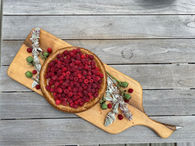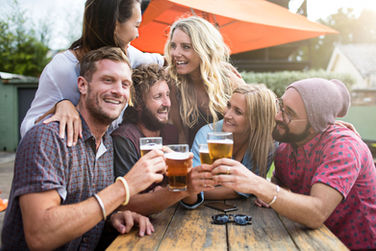
Food psychology
We all have a unique relationship with food. This relationship is often formed by food memories, our food environment, and our physiological response to It all. Understanding these dynamics can create a personal sense of clarity and agency. This kind of agency could also lead us into behaviours and actions which restore a healthy, and even more importantly, happy connection between mood and food.
I offer a few of approaches to food psychology, depending on your particular situation. For instance, if you would like to explore your connections between mood and food in a cooking class environment, have a look at Option 1. If however, you want to take a deep dive into your history and take a more therapeutic approach, have a look at Option 2, where we shop together, cook together, and process your particular food story in a compassionate environment which promotes understanding, relevance, and clarity. The process, outlined below, are the beginning steps in this journey. Option 3, is for individuals or organisations which would like to explore mood and food interactions in hospitality environments. This workshop focuses on supporting people who seek to create good food and experiences for their customers, but who are doing so in largely unhealthy ways both personally and or culturally.
All of these options can be done individually, or in groups as suits you.
Option 1 - A Mood / Food Experience
In this 2 hour cooking experience, we'll explore the connections between mood and food by preparing a four course meal that helps tell the story of your lived experience. For starters, we'll discuss early food memories and make an appetiser which speaks to your sense of nostalgia. Next, we'll create an entree connecting these memories with what's important to you today. The main will be a culinary realisation of what's truly relevant to your ongoing food journey. And finally, we'll design a dessert which expresses what makes you happy about eating, and life in general.
This experience can be with just yourself or with a friend, or a small group if you like.
Option 2 - A mood/food deep Dive
The Backstory
The first step in this journey is about looking back, identifying important food memories and associations which have mapped to our thinking and habits.
The Recipe
Cooking a favourite meal together allows us to celebrate your values while acknowledging memories and habits which may promote, or diminish your health and happiness.
The Cookbook
Healthy, happy connections with food require a deep understanding of our physiology. Tracking certain biomarkers, getting a family history, and supplementing our eating will likely round out the food / mood connections.
The Ingredients
Shopping for food together creates space for an embodied, compassionate experience which allows us to understand where your food history meets your everyday choices.
The Leftovers
From these experiences and stories, we should be able to gain key takeaways which help you decide how you want to blend your past and future food environments and experiences.
The Restaurant
Our individual approach to food has to be contextualised into the larger food environment. Your story collaborates with, or is challenged by food contexts and spaces which you need to be aware of, plan for, and engage with.
Option 3 - Working in Hospitality: Food, Mood, and Personal Agency
With a background in professional kitchens and in health psychology, I try to combine empathy, experience, and practical knowledge in addressing the challenging environment of working in hospitality. By exploring the historical and cultural roots of the hospitality industry, I would like to build a case for personal agency, both as a way to thrive in difficult environments, and challenge its corporate culture. My aim is to combine well researched principles in health psychology with actionable tools to create personal growth, even in the heat of the kitchen.
Yes Chef! - wtf?
How’d we get here - an exploration into professional kitchen culture
-
gaining control over tight spaces (economically, time, and space)
-
assumed authority - how humans deal with complexity
-
the task and function of hospitality - European / Maori concepts (manaakitanga)
-
real mana in the kitchen?
Psychological / physiological responses
Thoughts, behaviours, hormones, habits formed over time
-
cortisol goes both ways
-
our adrenals over time
-
stress tested or fatigued
-
overall immune response
-
lifespan depletion
-
time to quit or time to change?
The food environment
What may support or hurt our engagement in this space
-
the mood / food bidirectional interaction
-
reactive or proactive eating
-
what’s available in the kitchen? what’s intentional?
Developing agency
Intercepting, exterocepting, propriocepting - a workshop of knowing your self in this space
-
fostering homeostasis (balance)
-
maintaining agency / control
-
fostering and supporting change in fractals
-
yourself, the person next to you, the environment
Developing and identity of care
Understanding your particular gift in this space
-
knowing your self (identity)
-
intentionally developing your skills / personality
-
finding your fit, or moving on
What I bring to the table:
I've worked in professional kitchens for years and have developed a knack for pop-up hospitality. My cookbook (The Kitchen Sink) is a philosophical expression of my own food journey. Along side of this, I have a BA in Psychology (Massey University), a post graduate degree in health psychology (Victoria University) and am presently doing a PhD in Health Psychology at Victoria University in Wellington. These experiences brings all of these skills and intentions together in a workshops specifically designed to create compassionate, embodied food experiences.

































